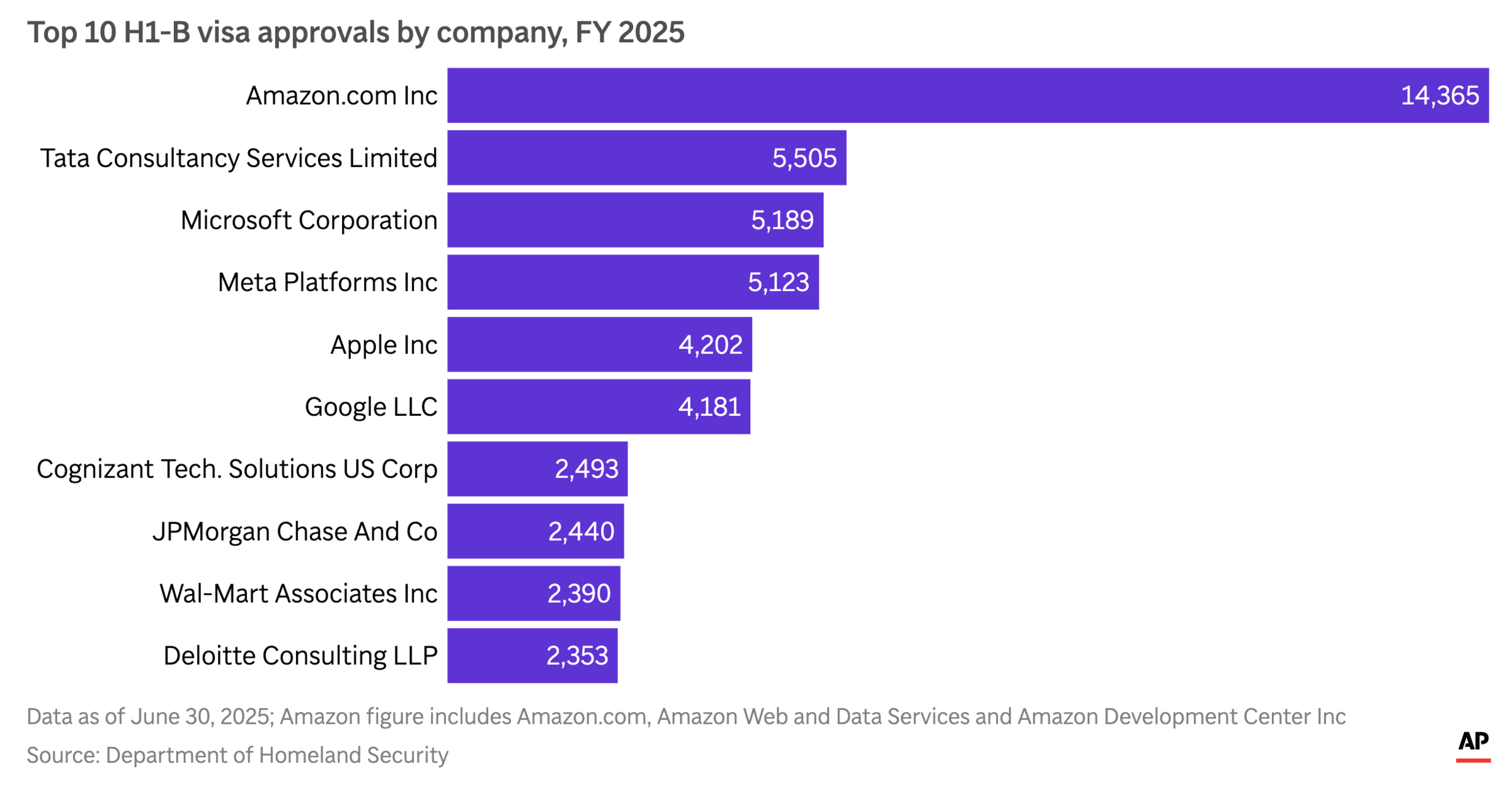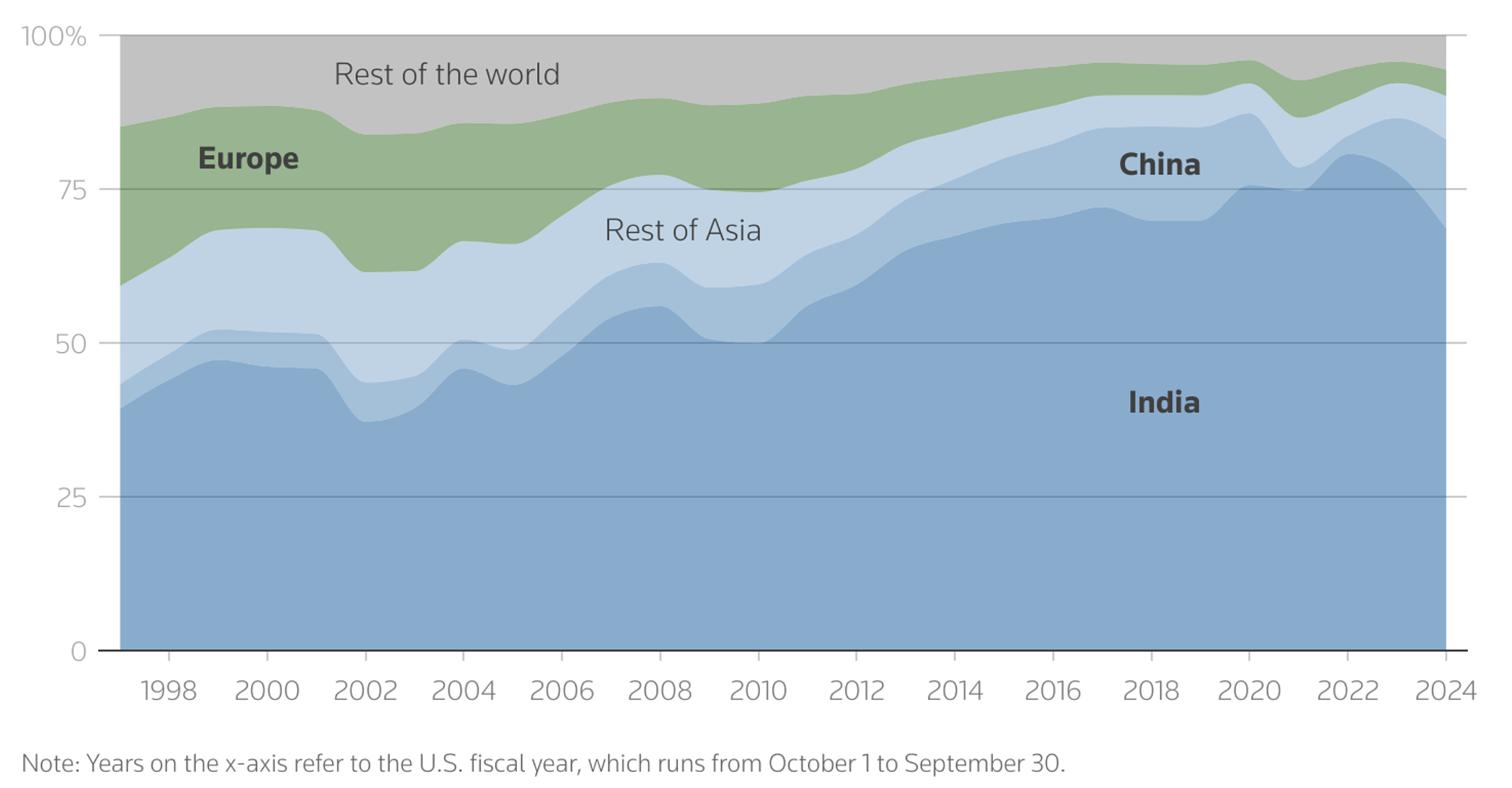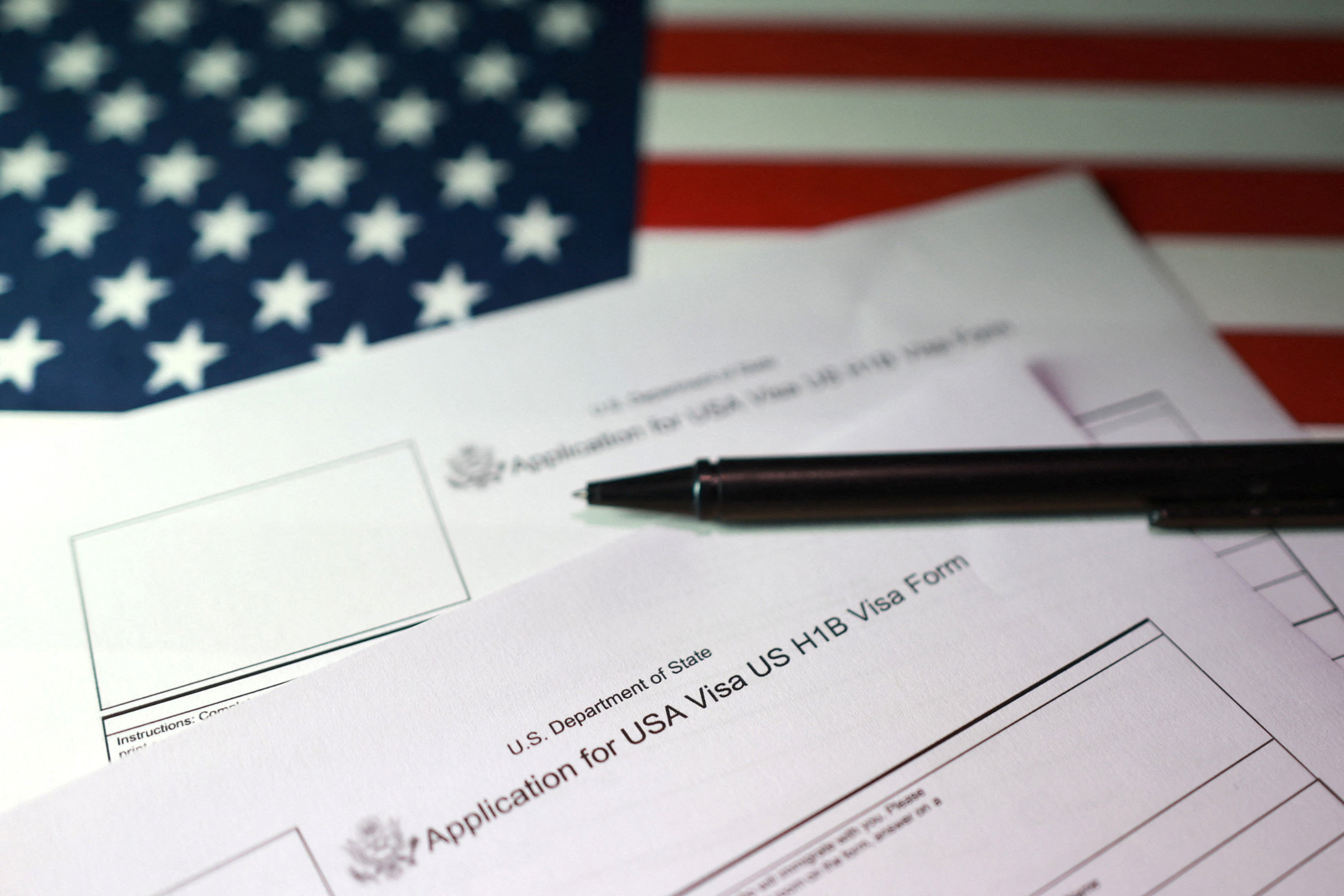Last week, the Trump administration announced plans to increase the fee businesses pay for H1B visa workers to $100,000. The White House claims this move will ensure only highly skilled, irreplaceable workers come to the US, protecting American jobs.
The H1B visa is a non-immigrant visa allowing companies to hire highly skilled foreign workers for a specific period, typically three years, with the possibility of extension or a green card. Economist Stephen Brown of Capital Economics estimates there are currently about 700,000 H1B visa holders and around 500,000 dependents.
According to the Pew Research Center, at least 60% of H1B visas approved since 2012 were for computer-related jobs. The annual cap for new visas is 65,000, with an additional 20,000 for those holding master's degrees or higher. These visas are allocated through a lottery system, with some employers, such as universities and non-profits, exempt from the cap. Pew also reports that nearly three-quarters of approved applicants in 2023 were from India.
 |
Top 10 companies hiring H1B workers in fiscal year 2025, as of 30/6. Graphics: *AP* |
While the $100,000 fee applies only to new applications, the high cost and unclear implementation have caused many tech companies to pause hiring plans, budgets, and staffing arrangements, according to Reuters.
Immigration lawyer Chris Thomas of Holland & Hart reports that even large, Fortune 100 corporate clients are saying they cannot continue hiring foreign workers under the H1B program. "They're saying they can't bring people to the US at this price. So, it's time to consider moving to other countries with high-quality talent," he said.
Previously, companies paid a few thousand USD to sponsor visas. The $100,000 fee changes the equation, making remote hiring more attractive. For example, companies might expand offices in lower-wage countries like India to recruit talent, according to experts and business leaders.
In fact, some companies are already considering expanding operations in India. Information technology services company Accenture is planning a new facility in Andhra Pradesh, southern India, expecting to add about 12,000 jobs.
Sam Liang, co-founder and CEO of Otter, an AI-powered meeting assistant startup, anticipates reducing the number of H1B workers they can hire. "Some companies may be forced to outsource to India or other countries," he said.
 |
Nationality breakdown of H1B visa recipients over the years. Graphics: *Reuters* |
Greg Morrisett, dean and vice provost at Cornell Tech, the graduate and research technology campus of Cornell University (New York), predicts large tech companies will shift more operations to other countries. "We've seen this before. For example, Ireland became really attractive from a tax perspective. Suddenly all the headquarters moved to Ireland," he explained.
Ganesh Natarajan, former CEO of software outsourcing company Zensar Technologies, believes companies will move more jobs to India, Mexico, and the Philippines. "The 'American dream' for these workers will be very difficult," he said.
The White House argues the H1B program has been abused, suppressing wages and limiting opportunities for American tech workers. They believe the $100,000 fee will ensure only highly skilled, irreplaceable workers come to the US, protecting American jobs.
Supporting the fee increase, Netflix co-founder Reed Hastings argues the new policy will eliminate the H1B lottery and reserve visas for "very high-value jobs" with greater certainty.
However, Deedy Das at Menlo Ventures warns of disproportionate impacts on startups. Unlike large tech companies offering cash and stock options, startups often rely on equity to attract talent, needing to conserve cash for business development.
According to Das, while the $100,000 fee is negligible for large companies, it significantly impacts small startups with under 25 employees. "Big Tech CEOs anticipated this and will pay. For them, fewer small competitors is an advantage. It's the small startups that suffer the most," he said.
 |
H-1B visa application form against the backdrop of the American flag. Photo: *Reuters* |
Echoing this concern, Greg Morrisett believes startups and small businesses will be hit hardest, unable to afford the new fee. He points out that Cornell Tech has incubated around 120 startups, most with international students. "They'll move to Europe or Asia, wherever they can find opportunities," he said.
Analysts also suggest the policy could reduce immigrant talent, who often found new companies. A 2022 report by the National Foundation for American Policy (NFAP) found that over half of startups valued at $1 billion or more had at least one immigrant founder.
"The next Amazon, the next Google, will give up and move elsewhere. Then, we lose our leadership advantage in the next generation of technology," Greg commented.
Many lawyers report that their startup clients are pinning their hopes on lawsuits, arguing the administration overstepped its authority by imposing a fee far exceeding the Congressionally authorized range. They hope the courts will intervene before the exorbitant cost cripples hiring.
"Otherwise, we'll witness an exodus of the world's brightest minds," warns Bilal Zuberi, founder of Red Glass Ventures in Silicon Valley, who began his US career on an H1B visa.
Phien An (*Reuters, AP*)












